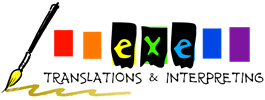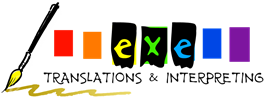COURSE DESCRIPTION
This course is suitable for interpreters working in legal, social services, healthcare, and educational settings where they may encounter foster care matters. By equipping interpreters with the specialized knowledge and skills needed to interpret in foster care settings, this course aims to support accurate communication, promote cultural understanding, and uphold the rights and well-being of children and families involved in the foster care system.
This specialized course is designed to provide interpreters with the knowledge and skills necessary to effectively interpret in foster care settings. Interpreters play a critical role in facilitating communication between children, families, social workers, legal professionals, and other stakeholders involved in the foster care system. Understanding the unique dynamics and terminology of foster care matters is essential for interpreters to ensure accurate and culturally sensitive communication in this sensitive and complex context.
Throughout this course, participants will explore the key aspects of foster care matters, including legal procedures, child welfare policies, and the roles of various stakeholders. They will learn about the challenges and ethical considerations specific to interpreting in foster care settings, as well as strategies for overcoming language barriers and promoting effective communication. Participants will also have the opportunity to engage in practical exercises and case studies to apply their knowledge and skills in realistic scenarios.
COURSE OBJECTIVES
- Understand the foster care system, including its structure, legal framework, and key stakeholders.
- Familiarize with the terminology and vocabulary commonly used in foster care matters, such as dependency hearings, reunification plans, and permanency goals.
- Explore the roles and responsibilities of interpreters in foster care settings, including ethical considerations and standards of practice.
- Develop strategies for effective communication and cultural mediation in interactions involving children, families, and professionals in the foster care system.
- Learn techniques for managing challenges specific to interpreting in foster care, such as sensitive topics, emotional situations, and trauma-informed communication.
- Enhance proficiency in consecutive and simultaneous interpretation modes, with a focus on accuracy, clarity, and impartiality.
- Discuss the importance of self-care and boundary-setting for interpreters working in emotionally demanding environments like foster care settings.
COURSE OUTLINE
- I. Introduction to Foster Care System
- A. Overview of the foster care system: purpose, structure, and stakeholders
- B. Understanding the legal framework governing foster care matters
- C. Role of interpreters in facilitating communication within the foster care system
- II. Terminology and Vocabulary
- A. Commonly used terminology in foster care matters: dependency, permanency, reunification, etc.
- B. Vocabulary related to legal proceedings in foster care: hearings, petitions, court orders, etc.
- C. Cultural considerations in interpreting terminology and vocabulary in foster care settings
- III. Roles and Responsibilities of Interpreters
- A. Ethical considerations and standards of practice for interpreters in foster care settings
- B. Understanding interpreter neutrality, impartiality, and confidentiality
- C. Strategies for maintaining professionalism and cultural sensitivity in interpretation
- IV. Communication Dynamics in Foster Care Settings
- A. Interpreting for children: age-appropriate language, developmental considerations
- B. Interpreting for parents: addressing emotional and sensitive topics, cultural nuances
- C. Interpreting for professionals: social workers, attorneys, judges, and other stakeholders
- V. Specialized Skills for Interpreting in Foster Care
- A. Techniques for managing emotional and challenging situations during interpretation
- B. Trauma-informed communication: understanding and responding to trauma triggers
- C. Building rapport and trust with children and families in foster care settings
- VI. Legal Proceedings
- A. Interpreting dependency hearings, permanency planning meetings, and other legal proceedings
- B. Translating court documents, petitions, and other written materials related to foster care matters
COURSE LESSON
This course consists of a presentation, videos, and a quiz. You will have 90 days from the date of purchase to complete this course. Click on the title below to start the lesson:

